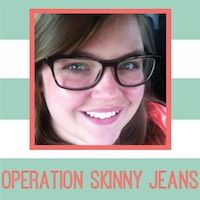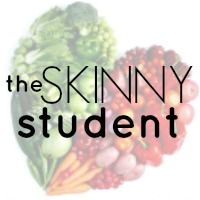Dylan is just days away from turning one, and conventional wisdom tells me I should start giving her sippy cups with cow's milk...but I'm not convinced I can go there. I've learned things about milk and the dairy industry that I just can't unlearn, and I'm astounded by it all.
 |
| Oh hey Mom. I'm ready for my sippy cup. |
This is a brief overview of the myriad issues with milk. Each of these topics could be a full article in itself (and certainly is out on the interwebs), but I'm attempting to show you the high points. Or low points, as it seems.
Growth Hormones
You may or may not have heard that dairy cows are treated with hormones that help them produce more milk. You may have even seen it labeled on milk cartons: rBGH or rBST. Have you stopped to wonder what these are? I figured they were whack and totally avoided them, but once I took the time to research I realized it was even worse than I thought. These hormones cause cows to produce 10-15% more milk, but also causes horrifying health problems like cystic ovaries, uterus disorders, and mastitis (a painful udder infection). This last one is particularly disgusting because infected cows secrete pus and blood into the milk, a certain amount of which is allowed to be sold by FDA standards. Yum!!
These hormones been banned in the European Union, Japan, Australia and New Zealand. But as we know the US has taken a different stance by allowing these into the food supply untested, exercising absolutely no precaution to ensure they're safe. Thanks FDA. You suck at your job. There are theories being researched linking synthetic rBGH to early puberty in girls, breast cancer, and rising milk allergies. The studies are controversial (and hotly contested by big dairy), but you know what? I'd rather just not take the risk.
But lets return to the cows, so I can segway to my next point...synthetic hormones making them deathly ill. So what do we do next? We drug them, of course!
Antibiotics
Did you know that 80% of all antibiotics produced in the US are given to livestock? Cows are literally pumped full of meds...which of course make their way to us (and our kids). This is scary for a couple reasons. First, some researchers believe that the rampant drugs in our food are leading to antibiotic-resistant bacteria - "superbugs" which don't respond to antibiotics. Repeated exposure to antibiotics causes immunity to them. You have to think, if we are ingesting antibiotics on the daily from milk...don't you think our bods are becoming resistant to them? All superbugs aside...if my body is getting regular doses of these drugs, then how effectively can they treat even a garden-variety infection when it comes around?
In July 2013, a bill was introduced into congress called The Preventing Antibiotic Resistant Act, which greatly limits the reasons, timeframes, and amounts of antibiotic treatment of livestock. People are starting to understand what a serious problem this is.
GMO Corn Cow Feed
Cows are not eating well, y'all. Just one component of the generally horrifying conditions they live in is what they are given to eat. Cows are ruminants, which means they have a four-chambered stomach designed to digest grass...NOT corn. Dairy cows are generally given a cocktail of corn meal, alfalfa, hay, and soy (and they fare better than poor beef cattle, who get mainly corn, and are downright sick and miserable). You best believe that feed is GMO, and you are what your food eats.
Here is a really science-ey article that explains why corn-fed dairy sucks and grass-fed dairy (if you can find it) rocks balls.
Pasteurization
I admit that until writing this post, I didn't totally get what pasteurization was. In short, it's heating the milk at a high temperature for a short period of time to kill any potentially dangerous bacteria. This is done to prevent outbreaks of things like Salmonella and E.Coli. It also gives milk a longer shelf life. All good, right? Well, uh....no. Because heating something at extremely high temps literally blanches the nutrients right out of it. And get this: Organic milk is usually "Ultra Pasteurized". This means that the milk is heated to 280 degrees for just a couple seconds. This extends the shelf life from a few weeks to 6-9 months. What?! It's so scorched that it never even has to be refrigerated. They do this for organic milk because there is simply not as big a market for it, and it sits on the shelves much longer before being purchased.
So what's the big deal with ultra-pasteurization? The milk is straight dead. Enzymes are destroyed, proteins are altered, and the nutritional value does not come close to that of raw milk. We'll talk about raw milk in a bit. But the bottom line is, the nutritional quality of the milk is severely degraded as a result of the heating, and it's even worse in organic milk.
 |
| Pasteurization Plant |
So...if milk is so bad for you, why do any of us drink it? Doesn't milk do a body good? Isn't it the best source of calcium? Nah, not really. A hugely successful campaign has been launched by the dairy industry to make us all believe that we and our babes absolutely need the stuff to keep our bones in tact. Simply not true. A cup of cooked quinoa has as much calcium as a quart of milk. Kale is a calcium powerhouse, as are salmon, nuts, whole grains, figs (yum!), fortified oatmeal...the list goes on.
Here is an article that sums it up quite nicely: Dairy is a nature's perfect food - but only if you're a calf. And here is an article that sums up my opinion on this entire topic just perfectly.
 |
| Oh, well if Giselle drinks milk nude on the beach, it must be good. |
 |
| Nooo Bey Bey. I love you. You don't need milk to be bootylicious. |
 |
| Okay fine. This one is kind of convincing. |
Plus, people...don't you think it's a little weird that we drink another species' breast milk? Why do we do this?! And who picked the cow, anyways? Why not horse milk, or wombat milk, or any other mammal? It's super weird when you start thinking about it.
Cow's milk is meant to nourish a 90 lb. newborn calf that eventually becomes a 1400 lb. cow, not a 20 lb. little homo sapien. Did you know that humans are the only species that can digest milk beyond childhood? Well, some of us can...at least 60% of adults worldwide are lactose intolerant. Scientists believe that the 40% who can are the abnormal ones, as a result of a strange genetic mutation.
Animal Cruelty
OMG. You think those Sarah McLachlan puppy commercials are bad?! Try taking a look at an industrial dairy farm. It's nothing short of atrocious. These poor dairy cows are confined in shockingly tiny spaces, fed a totally unnatural diet, pumped full of hormones that make them sick and then pumped full of drugs to treat the sickness. They are kept pregnant the majority of their lives so that they continue lactating for all of us, but their own babies are snatched away from them after just a day or two. They are hooked up to painful industrial milking machines all day, with engorged, infected udders.
I recalled reading somewhere (I swore it was Omnivore's Dilemma) that the female cow is the most overworked animal on the planet. I googled that phrase, and this heartbreaking video came up. Watch it if you have a few minutes...but also maybe don't if you're about to eat, or if you cry during the puppy commercials.
 |
| http://www.youtube.com/watch?v=6M7nfx1eanE |
Milk Alternatives
Okay - I trust you are yakked out on milk now, as I am. But what if you find the stuff to be delicious, as I do? Or don't know what else to give your kid instead? I am going to write an entire post which goes into great detail about all the milk alternatives and their various considerations. Here is a little preview of some options you could try:
- Organic Milk: This is not a terrible option. It's not as nutritious as raw milk due to the ultra-high-temp pasteurization, but you are certainly free of hormones, antibiotics, and GMO feed. I recently purchased Organic Valley Grassmilk and sweet baby Jesus is it delicious.
- Almond Milk: This could definitely work. It has more calcium than milk. But you have to read labels very carefully. As I mentioned in this post, almond milk may have some weird additives like carrageenan, which is a known carcinogen and stomach irritant. I'll research brands for you in my follow-up post.
- Hemp Milk: This one sounds pretty dang perfect, but is perhaps a bit hard to find at your typical grocery store.
- Soy Milk: Same story as almond milk - find a good brand without too many additives. Plus, my unscientific opinion is that you may want to limit this somewhat, as soy contains phytoestrogens (plant-based hormones that mimic the function of estrogen in the body). And please buy organic, as 90% of all soy in the US is genetically modified.
- Raw Milk: This is as good as it gets. However, it's illegal in many states (like mine) and can be very hard to find. Plus, you should be aware that raw, unpasteurized milk does carry the very small risk of food-borne illness.
Bottom line: Milk is not really a health food. Chances are, you wont feel great after drinking it. Your kid doesn't really need it. If you love the taste, put it in your 20% as an indulgence, not your 80% as a daily staple.
Thoughts? Do you find this information shocking, or is this stuff becoming common knowledge? Any milk-free mamas out there?











great post! since i'm a "weird" vegan now, i clearly don't drink milk and find myself reading lots of weird research on food products. i love that you posted this! especially because, as a vegan, i get "where do you get your calcium, where do you get your protein?" all.the.time. my answer is 'the same place as a thousand pound gorilla." no one wants to discuss the fact that the ONLY reason people answer "dairy" to the question "what is the best source of calcium" is because the dairy companies paid the HUGE bucks to convince people that was the truth. anyway, i'm always super excited to see someone exposing the truth :)
ReplyDeleteBahaha @ the thousand pound gorilla! I literally never thought about it that way. That's brilliant. It's so funny (and strange) the things we assume are true...it's ALL marketing! I'd love to hear sometime how you decided to be come veg :)
Deletegreat post! I have to say I am guilty of indulging in a glass of milk every night :/ it's the only way I can take my vitamins, but I ALWAYS buy organic. I've also started trying coconut milk and almond milk, but I haven't been able to make the full switch.
ReplyDelete